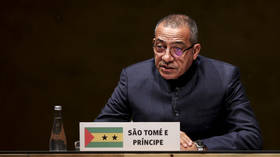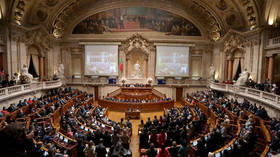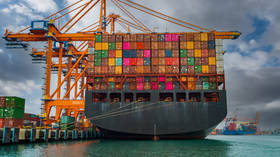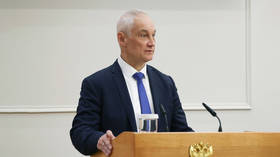African nation wants Portugal to pay colonial damages

Sao Tome and Principe is planning to seek reparations from Portugal for historical injustices committed during the colonial period, Isabel Abreu, the African island nation’s minister of education, culture, and science, said on Thursday.
She told Portuguese news agency Lusa that the nation’s cabinet ministers would meet on Thursday to discuss the issue while the government develops a plan of action for negotiating with Portugal.
Sao Tome and Principe’s move comes just a week after Portuguese President Marcelo Rebelo de Sousa stated that his country had been responsible for crimes committed during the colonial and transatlantic slavery eras, and must provide restitution for past mistakes.
Portugal’s colonial era lasted for more than five centuries, with some African countries only decolonized in 1974 after the ‘Carnation Revolution’ led to the fall of the authoritarian Estado Novo regime. Apart from Sao Tome and Principe, the Portuguese Empire’s African territories also included present-day Angola, Mozambique, Guinea-Bissau, and Cape Verde.
The country is also widely thought to have been the first European state to play a major role in the African slave trade. Between the 15th and the 19th centuries, nearly six million Africans were forcibly transported across the Atlantic on Portuguese ships and sold into servitude. Most went to Brazil, which was a Portuguese colony until 1822.
Last week, President Rebelo de Sousa, who has previously proposed that Lisbon should formally apologize for its role in the slave trade, said merely apologizing for past wrongs is not enough.
“Apologizing is sometimes the easiest thing to do; you apologize, turn your back, and the job is done. No, it’s taking responsibility for the future of what we did, good and bad, in the past,” he said.
Rebelo de Sousa’s remarks have sparked widespread debate, with Mozambican ambassador to the UN, Pedro Commissioner Afonso, describing the comments as “courageous.” He added that acknowledging past mistakes is a “reparation measure” but that it “would be even better if we could go beyond that.”
Earlier this week, Cape Verdean President Jose Maria Neves said discussions were necessary to reach an understanding and consensus on colonial reparations, and that there was no need to “create conflicts where they do not exist.”
However, the Portuguese government has rejected Rebelo de Sousa’s suggestion regarding compensation, saying there were no plans for a “process or program of specific actions” to provide restitution. Instead, it called for focus on deepening international cooperation “based on the reconciliation of brotherly peoples.”
Andre Ventura, the leader of the right-wing Chega party, also reportedly described de Sousa’s remarks as a “betrayal of the country.”













